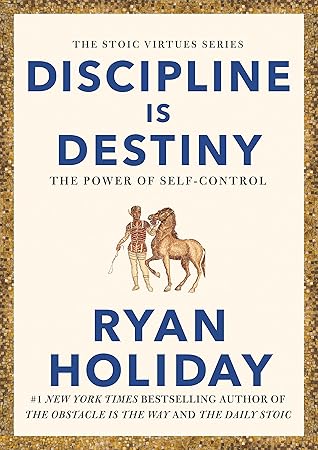More on this book
Community
Kindle Notes & Highlights
by
Ryan Holiday
Read between
September 26, 2022 - October 13, 2023
Temperance is not deprivation but command of oneself physically, mentally, spiritually—demanding the best of oneself, even when no one is looking, even when allowed less. It takes courage to live this way—not just because it’s hard, but because it sets you apart.
No one has a harder time than the lazy. No one experiences more pain than the glutton. No success is shorter lived than the reckless or endlessly ambitious. Failing to realize your full potential is a terrible punishment. Greed moves the goalposts, preventing one from ever enjoying what one has. Even if the outside world celebrates them, on the inside there is only misery, self-loathing, and dependence.
It’s easy to be disciplined when you have nothing. What about when you have everything? What about when you’re so talented that you can get away with not giving everything?
The truly dedicated are harder on themselves than any outside person could ever be. Temperance is not a particularly sexy word and hardly the most fun concept, but it can lead to greatness.
When you have trouble waking up, when you find it hard, remind yourself of who you come from, remind yourself of the tradition, remind yourself of what is at stake.
We are meant for more than simply existing. We are here for more than just lying around and seeking pleasure. We have been given incredible gifts by nature.
Treat the body rigorously, as Seneca tells us, so that it may not be disobedient to the mind. Because as you’re building muscle, you’re also building willpower.
At the core of this idea of self-mastery is an instinctive reaction against anything that masters us.
By being a little hard on ourselves, it makes it harder for others to be hard on us. By being strict with ourselves, we take away others’ power over us.
When you strip away the unnecessary and the excessive, what’s left is you. What’s left is what’s important.


